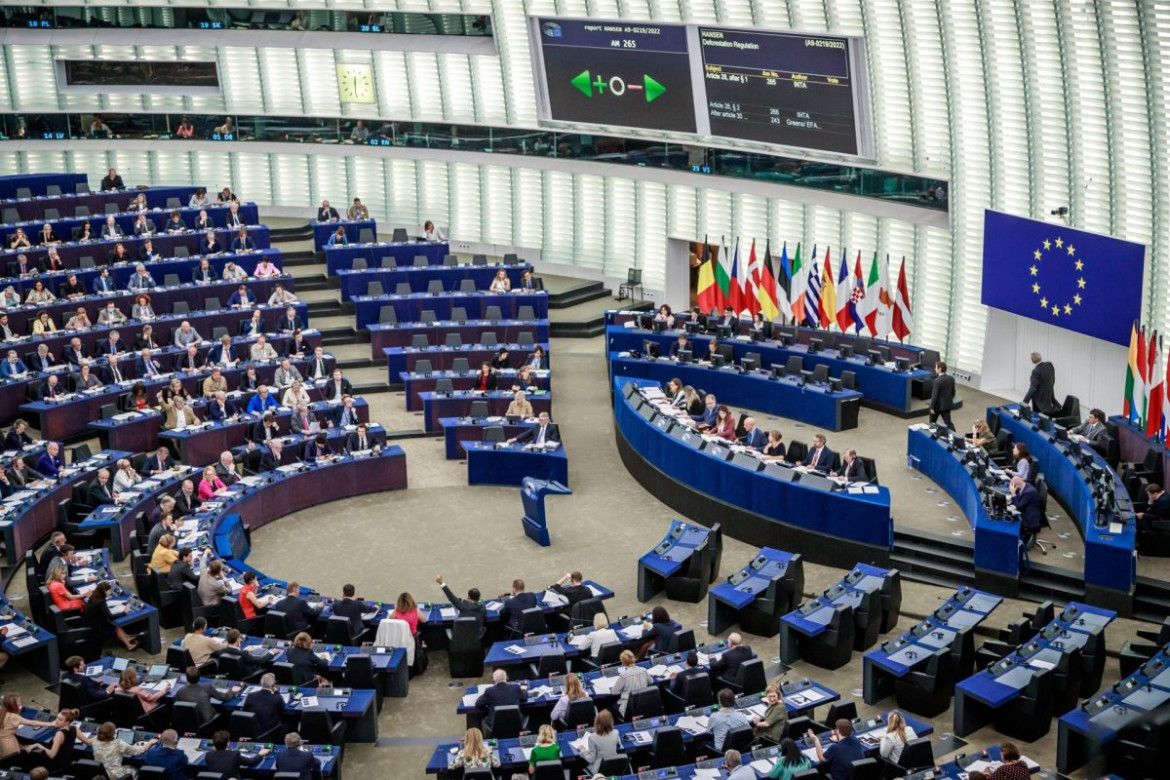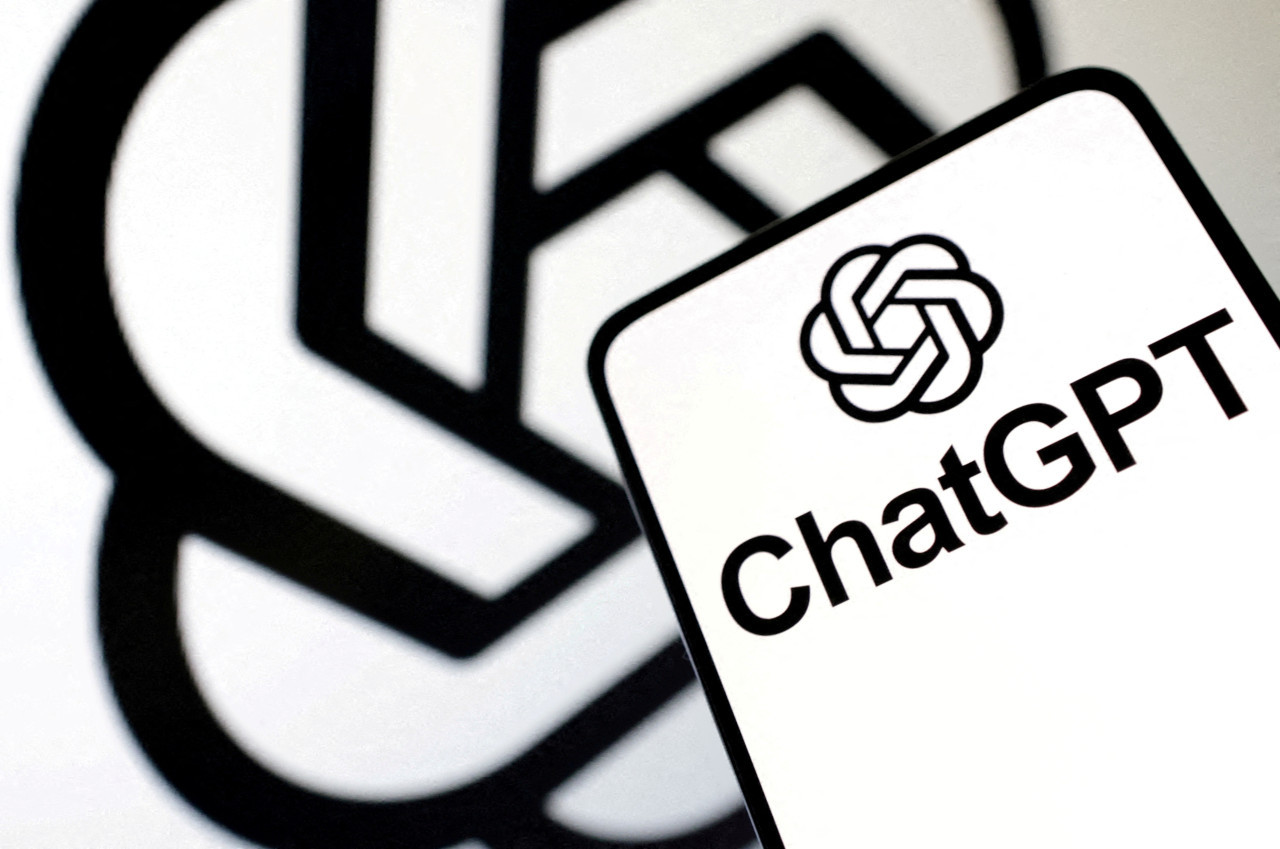The European body took the first step in trying to regulate this technology by discussing its most controversial issues.
Artificial intelligence. Photo: Freepik.
The European Union (EU) Agreed to a law Artificial Intelligence (AI) Regulate and invest in this technology Competing with giants like China, USA. “EU AI legislation is a world first. We can count on a single legal framework for the development of artificial intelligence,” said the European Commission president. Ursula van der LeyenAfter 36 hours of negotiation.
The European Union has approved the Artificial Intelligence Act. Video: EFE.
They still need to ratify the new law The European Parliament and the Council of the European Union. The agreed text contemplates various aspects regulated or directly Forbidden.

This may interest you:
According to artificial intelligence, Argentina is the city with the best beach for a vacation
Face recognition
One of the most controversial points discussed Biometric identification cameras can be used by law enforcement in public places To guarantee national security. Resolved that in this sense, with prior judicial approval, this method can be used To prevent a “real and foreseeable” or “actual and present” terrorist threatI mean it’s happening at that time.
 European Parliament. Photo: EFE
European Parliament. Photo: EFE
You can use them too Finding or identifying a person who has committed a crime such as terrorism, human trafficking, sexual exploitation or environmental crime. Additionally, cameras can be used Search for victims of this attack. It was one of the centers of debate as there were differences of opinion Expand the list of crimes to be recognized with AI without violating basic universal human rights.

This may interest you:
ChatGPT has a command that is not responding: what is it and why is it refusing?
Prohibits
Law, moreover, Prohibits all biometric classification systems based on political, religious, philosophical beliefs or race and sexual orientation. Nor can rating systems be used based on people’s behavior or personal characteristics. In this sense, AI systems capable of manipulating human behavior were banned.
Besides, systems Expanding or creating facial databases by indiscriminately capturing information via the Internet or audiovisual recordings is prohibited by the European Union.. In this sense, AI tools cannot be used Find feelings In educational and employment institutions.

This may interest you:
Gemini vs ChatGPT: Here are the differences between the chatbot apps
Formative models
Another key aspect that was at the center of the negotiations was the regulation of generative AI systems, including models ChatGPTFrom the company OpenAI oh Bartof Google. These tools must meet certain transparency criteria based on this law, such as clarifying whether a text, song or photo was created by AI and guaranteeing the data used to train the systems they respect. Copyright.
 ChatGPT. Photo: Reuters.
ChatGPT. Photo: Reuters.
Initially, the law was not designed to regulate these types of organizations, because they were not very popular when Brussels proposed the law in April 2021, but social enterprises have since pointed to the need to legislate them. ChatGPT In 2022. The regulation did not limit its use, but established a series of criteria to identify samples They can be dangerous depending on the environment in which they are used. Additionally, it forces its developers to comply Strict standards before placing them in the market.

This may interest you:
They designed a type of mammography with artificial intelligence that could reduce the risks of the test
Regulatory criteria
Debates have been intense ever since The purpose of the law is to regulate the use of technology that holds great potential for civilization, while creating uncertainty about how it will evolve. With questions that even developers still don’t know how to answer, according to sources familiar with the discussions.
Several precautions were taken with AI types used to influence the outcome of electionsor used by financial institutions to evaluate credit and establish a credit rating.
 Artificial intelligence. Photo: Unsplash
Artificial intelligence. Photo: Unsplash
In this sense, the Spanish Presidency of the Council of the EU achieved one of its main objectives this semester with the agreement of this pioneering law in the world. “We have reached an important milestone where citizens decide what can and cannot be done with artificial intelligence”said Carme Artigas, Spanish Secretary of State for Telecommunications and Digital Infrastructure.
“We have reached an important milestone where citizens decide what can and cannot be done with artificial intelligence”
Proposes standard formulation European Office of Artificial Intelligence, It will coordinate the use of technology between national authorities and will be advised by a panel of experts and civil society organizations. The law will take effect in 2026, but will be applied in phases: The European Office will be created immediately, the ban on specified artificial intelligence systems will reach six months, and the requirements for AI systems and models will reach 12.
Rule breakers They must pay a fine of up to 35 million euros ($37.6 million) or 7% of the company’s global revenue, Up to 7.5 million euros ($8 million) or 1.5% of global business volume.

